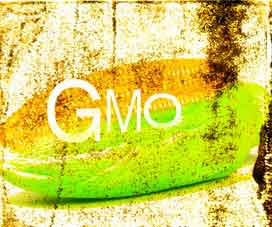Monsanto Under Investigation by Seven U.S. States
Posted by Dr. Mercola | April 22 2010 | 5,494 views
 "At least seven U.S. state attorney generals are investigating whether Monsanto Company has abused its market power to lock out competitors and raise prices on seed," the Organic Consumers Association reports.
"At least seven U.S. state attorney generals are investigating whether Monsanto Company has abused its market power to lock out competitors and raise prices on seed," the Organic Consumers Association reports.
This adds to the increasing pressures on the agricultural biotech giant.
The seven states are "probing whether Monsanto violated laws by offering rebates to seed distributors for excluding rival seeds, imposing limits on combining the product with other genetic modifications, or offering cash incentives to switch farmers to more expensive generation of seed varieties."
In addition to that, Monsanto's marketing practices are being reviewed by the US Justice Department, and DuPont Company has accused Monsanto of anti-competitive practices in licensing litigation.
Sources:
| Dr. Mercola's Comments: |
According to Bloomberg, the seven-state antitrust probe adds to previous allegations of abusive competitive tactics and is a serious threat to Monsanto's soybean market share.
It would almost seem like an open-and-shut case when you consider Monsanto's history of quenching the competition at nearly any cost, and being found guilty of falsely marketing dangerous herbicide as biodegradable and environmentally friendly.
But I guess that still remains to be seen. Let's just hope they don't deem Monsanto too big to nail, or fail, like the pharmaceutical company Pfizer and any number of banks…
One problem I foresee though, is that not only has Monsanto become the dominat force in the seed market by buying up seed companies, they've become the Goliath that they are by influencing politics from the ground-floor and up.
For example, they've helped write state laws that make cleaning, collecting and storing seeds so cumbersome and costly that having normal, non-GM seeds is nearly impossible in some states. They're also lobbying for laws that ensure farmers and citizens can't prevent the planting of GMO crops, even if they can contaminate other conventional crops nearby.
They've successfully manipulated US legislators to put those self-serving laws in place, so the question is whether or not this antitrust probe can accomplish what the rest of our government has failed to do, which is to rein in an out-of-control company that has its mind set on "advancing" agriculture into oblivion and "saving the world" by eventually starving it to death.
Big Bucks at Stake
"At stake are the costs to farmers who produce $80.3 billion a year in corn and soybeans, used in products ranging from Coca-Cola to cattle feed to ethanol.
"Monsanto has become such a dominant player in the seed business that producers have real concerns that the price they pay for seed is going to be anywhere near reasonable," said John Crabtree, a spokesman for the Center for Rural Affairs in Lyons, Nebraska, a nonprofit group that provides services to farm communities. "The fear is that the sky's the limit."
These fears are not unfounded when you consider that prices on everything from the seed to the obligatory fertilizers and pesticides that are required to make the GM seeds "grow properly" have skyrocketed.
According to a report by Charles Benbrook, chief scientist at the Organic Center in Boulder, Colorado, the influx of genetically modified seed has steadily ratchet prices upward.
Seed used to be fairly inexpensive, in large part due to the practice of planting seed collected and saved from the previous year. With GE seeds, this ancient farming practice is no longer employed and farmers must buy new seed each year.
The 2009 Organic Center report, titled The Magnitude and Impacts of the Biotech and Organic Seed Price Premium, states that farmers who purchase Monsanto's Roundup Ready 2 soybeans in 2010 will pay 42 percent more per bag than they paid just last year.
This is in stark contrast to the overall rise in soybean seed prices over the last 25 years, which was 63 percent.
Between the years of 1975 and 1997, soybean farmers spent four to eight percent of their farm income on seeds. Last year, those who planted GE soybeans spent 16.4 percent of their income on seeds.
The story is the same for GM corn growers, who will pay just over twice the amount for the latest eight-trait "SmartStax" corn seed, compared to those planting conventional seeds. And GE cotton seed now cost nearly 6 times more than conventional.
The report shows that the GE seed price premiums FAR exceed the organic seed price premium, across the board, for various crops.
This should be an eye opener for anyone who still believes genetically engineered crops are the way to inexpensively feed the world…
The only one who is truly benefitting, it seems, is Monsanto, who ended their fiscal year in 2009 with revenue of $11.7 billion. Over $7 billion of that came from sales and licensing of seeds and seed genes.
So, is growing GM crops REALLY in the best financial interest of most farmers? Or are they simply being hoodwinked by fancy marketing that promises increased yield and reduced pestilence?
Benbrook asks the same question, and has called for further studies to evaluate whether or not GM crop yields warrant the disproportionate difference in price. If previous studies are any indication, I believe the answer is no.
GM Crops Yield Unimpressive Results
In reality, GM crops create previously unimaginable profits for sub-par performance when compared to conventional or organic crops.
And when you review the potential danger these crops pose to human and environmental health, the list is so disturbing you could easily say we're all paying for poison when we buy GM food products.
After 30 years of GMO experimentation, the data to shows:
- No increase in yields; on the contrary GM soya has decreased yields by up to 20 percent compared with non-GM soya. Up to 100 percent failures of Bt cotton have been recorded in India. And studies by scientists from the USDA and the University of Georgia in 2008 found that growing GM cotton in the U.S. can result in a drop in income by up to 40 percent.
- No reduction in pesticides use; on the contrary, USDA data shows that GM crops have increased pesticide use by 50 million pounds from 1996 to 2003 in the U.S., and the use of glyphosate went up more than 15-fold between 1994 and 2005, along with increases in other herbicides to cope with rising glyphosate resistant superweeds.
- Roundup herbicide is lethal to frogs and toxic to human placental and embryonic cells. Roundup is used in more than 80 percent of all GM crops planted in the world.
- GM crops harm wildlife, as revealed by UK and U.S. studies
- Bt resistant pests and Roundup tolerant superweeds render the two major GM crop traits useless. The evolution of Bt resistant bollworms worldwide have been confirmed and documented.
- Vast areas of forests, pampas and cerrados have been lost to GM soya in Latin America.
- Epidemic of suicides in the cotton belt of India. According to the National Crime Records Bureau of India, more than 182,900 Indian farmers took their own lives between 1997 and 2007 as a result of failed GM crops. It estimates 46 Indian farmers commit suicide every day.
- Transgene contamination is completely unavoidable, as science has recently revealed that the genome (whether plant, animal or human) is NOT constant and static, which is the scientific base for genetic engineering of plants and animals. Instead, geneticists have discovered that the genome is remarkably dynamic and changeable, and constantly 'conversing' and adapting to the environment. This interaction determines which genes are turned on, when, where, by what and how much, and for how long. They've also found that the genetic material itself has the ability to be changed according to experience, passing it on to subsequent generations.
- GM food and feed linked to deaths and sicknesses both in the fields in India and in lab tests around the world.
How Can YOU Stop Monsanto from Ruling, and Ruining, the Food Supply?
Allowing Monsanto to monopolize the market could have lethal consequences for all of us. Because not only is Monsanto doing what it can to eliminate competition from other agricultural biotech products, their end game is to do away with conventional seeds, period.
As I've discussed in many previous articles, this is a threat to human civilization and would spell disaster for the entire planet.
Fortunately, you don't have to be directly involved in the legal or political end of the battle.
You, as an ordinary citizen, still have the power to make perhaps an even GREATER difference in how business will pan out for Monsanto – by steering the market demand toward non-GMO crops and foods.
Every time you choose to buy a non-GMO product over a product that contains GM ingredients, you are making a dent in the empire that is Monsanto.
While you're waiting for the leaders of the world to catch up, take advantage of local sources of organic foods as often as you can. You can also avoid GM foods by:
- Reducing or Eliminating Processed Foods. Some 75 percent of processed foods contain GM ingredients. Use the Non-GMO Shopping Guide, available for free at www.NonGMOShoppingGuide.com.
- Read produce and food labels. When looking at a product label, if any ingredients such as corn flour and meal, dextrin, starch, soy sauce, margarine, and tofu (to name a few) are listed, there's a good chance it has come from GM corn or soy, unless it bears the USDA organic seal.
- Buy organic produce. Buying organic is currently the best way to ensure that your food has not been genetically modified.
Related Links:
 How Monsanto Manipulates the System to Poison Your Health
How Monsanto Manipulates the System to Poison Your Health
| |||||||||||||||||
| |||||||||||||||||
| |||||||||||||||||
| |||||||||||||||||
| |||||||||||||||||












No comments:
Post a Comment